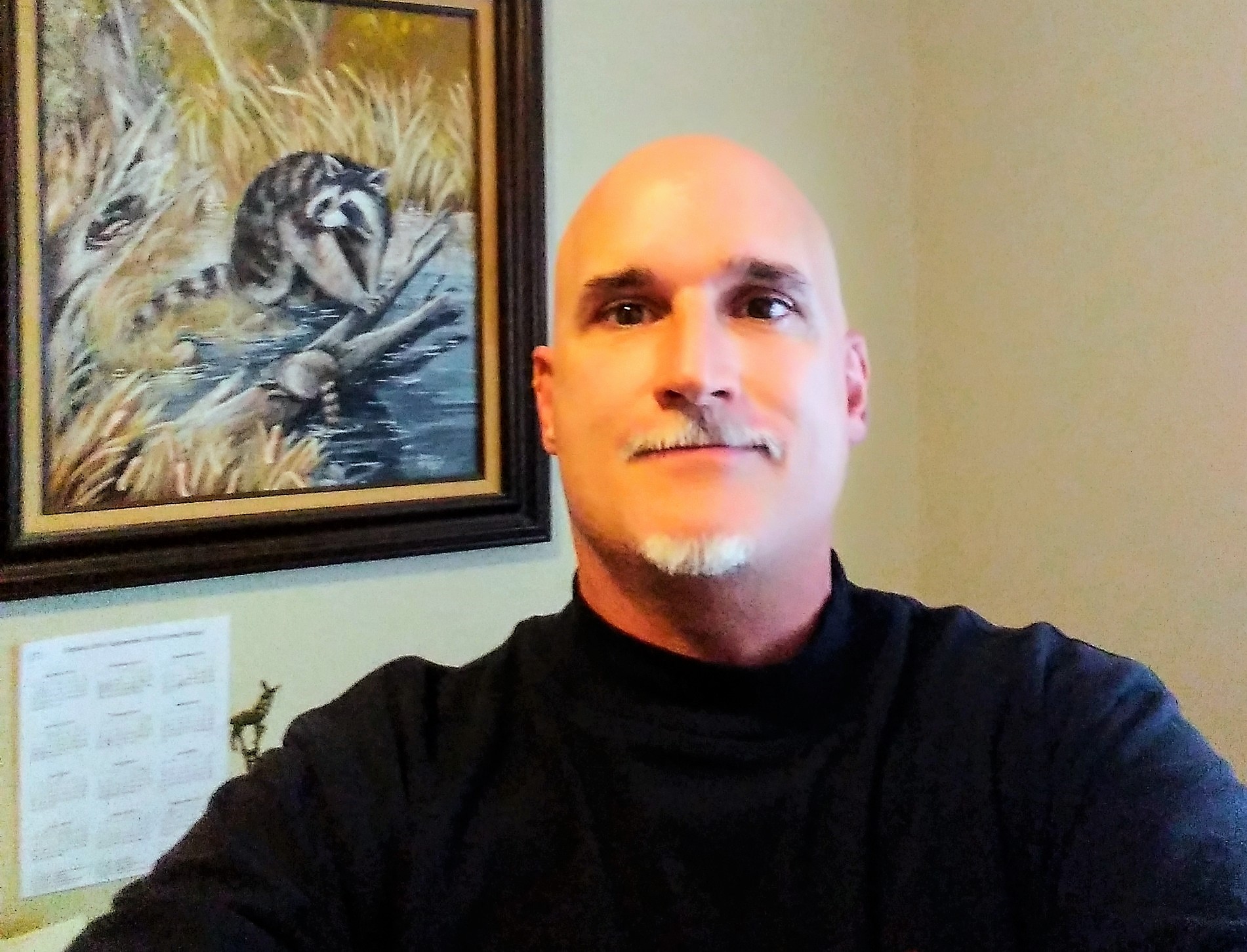Walking a Mile in My Nervous System
A survivor-focused workbook that explains what trauma really does to the body, identity, and inner voice — and how to begin reclaiming autonomy.
Open Workbook →Trauma Literacy & Peer Support Consultancy
ACEs stands for Adverse Childhood Experiences. It’s a public-health framework developed in the 1990s to help researchers understand how early, repeated stress affects long-term health, behavior, and nervous-system regulation. It was never intended as a diagnostic tool or a measure of personal strength or failure.
The ACEs framework emerged from a large-scale study conducted by the Centers for Disease Control and Prevention (CDC) in collaboration with Kaiser Permanente. Researchers noticed a striking pattern: adults with higher exposure to childhood adversity showed increased rates of chronic illness, mental health challenges, substance use, and stress-related conditions decades later.
The purpose of the study was not to label individuals, but to reveal how early environments shape biology — particularly the stress response system — over time.
Important context: ACE scores describe population-level risk, not individual destiny. Many people with high ACE exposure thrive — if they were were later exposed to protective relationships, meaning-making, and supportive environments that provide safety.
Think of ACEs as a map, not a verdict. It helps explain why certain patterns formed — not what you are capable of becoming.
A truth I won’t soften
There is a particular kind of violence that doesn’t leave bruises. It leaves one child housed, supported, protected, and continuously rescued—and another learning, over decades, that survival is a solo assignment.
People don’t like to talk about this kind of favoritism because it disrupts the myth of motherhood as inherently nurturing. But some mothers don’t just fail one child. They choose one—and then spend a lifetime justifying why the other deserves less, such as in my case.
Sometimes the justification is subtle. Sometimes it’s cruel. And sometimes it’s wrapped in religion.
I grew up watching my mother build a life for my brother: a stable home, a brick house, consistent support, transportation, work opportunities, protection from consequences. Even now, those supports remain intact—reinforced, unquestioned, assumed. All, while I've been left to figure it out and excluded from my family.
I grew up without any of that.
And this didn’t begin in adulthood. It began in childhood—when protection mattered most.
My brother and I had different fathers. His father was the brutal abuser in our home. There were moments that were not ambiguous, not disciplinary, not misunderstandings—but life-threatening.
Like at the age of 6 years old, when he "accidentally" poured boiling hot chocolate between my legs, sending me to the ER and leaving me with second- and third-degree burns to my groin. Yes, that happened as awful as it is.
The time he attempted to poison us with chemically contaminated food, telling us that if we didn't eat it all, he would beat us.
These weren’t accidents. They were moments where a mother’s most basic obligation—to intervene and protect—was unmistakable. And yet, no protection came.
What followed was just as formative as the acts themselves: silence, minimization, and later ridicule—mockery that happened in front of my mother and my brother, without consequence, without interruption, without anyone taking my side. He would tell me that my father was a monkey from the zoo, he would call me sissy and mock me in front of my brother. As a little boy, I didn't understand any of what was happening and believed I must be all the bad things they said.
Religion became the alibi.
Instead of confronting her choices, my mother reframed them as righteousness. Instead of acknowledging harm, she spiritualized it. Instead of reckoning with abandonment, she called it discipline, consequence, or God’s plan.
This is not faith. This is moral laundering.
When a mother chooses one child over another, it doesn’t happen by accident. It happens through a series of decisions: who is worth rescuing, who is worth investing in, who is given the benefit of the doubt, and who is expected to suffer quietly.
Over time, the chosen child is framed as “good,” “responsible,” or “deserving.” The other becomes “difficult,” “broken,” or “the problem.” And religion offers the final seal: God agrees with me.
A parent who can watch one child thrive under their protection while another is harmed in front of them—and call that love—has made a choice. A parent who provides safety selectively is not neutral. And a parent who uses religion to justify unequal care is not holy—they are avoiding accountability.
The difference isn’t character. It’s access to safety. One child was allowed to rest. The other was trained to endure. And endurance gets mistaken for weakness when it finally collapses.
Some mothers don’t protect all their children. They protect the ones who reflect well on them. They punish the ones who threaten their self-image. And they call it love.
That doesn’t make the abandoned child ungrateful. It makes them honest. And honesty, in families like this, is the one thing that’s never forgiven.
Survivor-Centered, Advocacy-Driven, Trauma-Science Grounded
What happens inside a child’s body at the exact moment trauma hits? Not in adulthood. Not in a therapist’s office. Not in an ACEs score. Right there. In real time.
What does their heart do? Their stomach? Their breath? Their sense of self? What are they possibly thinking about their safety at that moment?
What does a child feel when they are raised inside addiction… when the adults they depend on are high, raging, vacant, or unpredictable… when they begin understanding they're LGBTQ in a home where love has conditions… when religion is used as a collar and leash instead of a foundation… when survival becomes their personality?


Science has tried to answer these questions:
But none of those graphs capture what is actually happening in the body of a child whose entire central nervous system is being sculpted by fear.
I know what that feels like — because that was my childhood.
I’m Robert. Before I ever began learning, before I earned my master’s in human services… before I studied trauma, attachment, identity formation, and complex PTSD… I was living inside the very conditions people write about; a brutally abusive and psychologically shaming house of traumas.
I wasn’t learning trauma — I was surviving it.
And like every child in homes shaped by addiction, religion-as-control, or identity-based rejection, my nervous system adapted with perfect intelligence:
These weren’t symptoms. They were skills — crafted by necessity.
Maybe you’ve always felt “too sensitive.” Maybe your stomach clenches before you can explain why. Maybe you shut down during conflict. Maybe you over-apologize. Maybe you disappear in relationships. Maybe you don’t trust good things. Maybe you brace for the worst even when nothing is wrong.
You are not broken — you are adapted. Your reactions make perfect sense. Your nervous system did exactly what it had to do. You are the evidence of survival — not failure.
This is a space for:
This isn’t a platform for pity. It’s a platform for power. Advocacy. Reclamation. Truth-telling. Science-based understanding. And survivor-led education that the world desperately needs.
Nothing about your survival responses is shameful. Nothing about your story is “too much.” You are not broken — you were never given safety. Your body kept you alive. Your adaptations were genius, not defects. And you deserve to reclaim the life that fear stole.
Welcome to a place built for survivors — by someone who knows the terrain intimately. This is where your story gets its language.
You don’t need the right label. Just notice what sounds familiar.
This is often what the body does after repeated unpredictability: it stays “on watch,” scanning for what might go wrong. It can feel like you can’t fully relax—even when nothing is actively happening.
Sometimes the nervous system protects you by turning the volume down. This can look like feeling flat, foggy, distant, or “not really here”—especially after long periods of stress.
When safety depended on staying useful, pleasing, or prepared, “doing” can become a survival strategy. It may feel hard to rest without guilt—or like everything falls apart if you pause.
You might move between “on edge,” numbness, and over-functioning depending on what’s happening around you. That doesn’t mean you’re broken—it often means your system learned multiple ways to survive.

Robert McDowell, MS · QP · CPSS
I’m a trauma literacy specialist & peer support consultant, a budding writer, and survivor who has spent a lifetime learning the nervous system from the inside out.
My academic training includes a master of science in human services (Leadership & Organizational Management), clinical roots in medicine from the 90's as a licensed nurse, and professional credentials as a Qualified Professional and current North Carolina Certified Peer Support Specialist.
But my deepest education wasn’t earned in the institutions that taught me so much. It was earned through long, exhausting, and consistent survival.
I grew up inside chronic, destabilizing, identity-shaping trauma — the kind that teaches a little boy to read danger faster than language can form, and the kind that rearranges his sense of self before ever having a chance to understand who he truly was.
I know what it means to shapeshift and disassociate for safety. I know what it means to be the emotional barometer in every room, gauging attitudes and perceptions. I know what it means to internalize rejection, spiritual manipulation, and conditional belonging from such a young age that it felt like and was ingrained as truth.
My journey includes overcoming developmental trauma, surviving spiritual and identity-based coercion, wrestling with self-sabotage, confronting shame-conditioned behavior, and learning to separate my identity from the systems and people who tried to define it.
It also includes navigating the added layers of living as a gay man in environments structured to deny, correct, or erase that reality — a truth that shaped me, but does not confine the reach of my work.
Every tool I use to educate, support, and assist someone with comes from the intersection of lived experience, trauma science, behavioral understanding, and nervous-system literacy. My work is grounded in the belief that:
Trauma is not a flaw. It is the nervous system’s intuition doing exactly what it had to do to survive.
You are not overreacting. You are not “too sensitive.” You are not dramatic, defective, or broken. You are adapted — exquisitely, creatively, intelligently.
My role is not to “fix” you, but to help you understand:
No jargon. No pathologizing. No minimizing.
Just clarity, compassion, and evidence-informed tools for rebuilding the life you were always meant to claim.
I work with people from all walks of life who carry trauma in the body long after the danger has passed.
If you’ve ever felt like your entire identity was built around surviving other people’s expectations, instability, or beliefs — I know that world. And I know how to help you step out of it.
I don’t offer quick fixes or spiritual bypassing. I offer honesty, understanding, and tools grounded in trauma science, nervous-system function, and lived experience.
If you’re ready to understand your adaptations instead of fighting them… if you’re ready to stop blaming yourself for strategies that once kept you alive… if you’re ready to move from survival into authorship…
Then you’ve already taken the first step by being here. Let’s walk the rest together — one nervous-system truth at a time.
*My use of the acronym LGBTQ is used for the sake of brevity and to reflect language that is relatively familiar to readers and visitors to this page. I recognize, however, that this acronym cannot fully encompass the rich diversity of identities, experiences, and communities whose sexual orientation, gender identity, or gender expression may differ from society’s expected norms. My intent is to use accessible terminology while honoring and respecting the individuality of all people beyond the limits of this shorthand.
These guided workbooks are designed to help both survivors and professionals understand trauma through a nervous-system lens — with clear language, lived-experience insight, and evidence-informed tools.
A survivor-focused workbook that explains what trauma really does to the body, identity, and inner voice — and how to begin reclaiming autonomy.
Open Workbook →A professional guide for practitioners, educators, and leaders who want to recognize complex and religious trauma without minimizing or pathologizing survivors.
Open Workbook →Honest guidance on understanding why saying “no” feels so impossible and proven ways to stop over-explaining yourself. No complex psychology. Just simple, practical ways to hold your ground and protect your space.
A real-world look at how burnout can quietly take over your work, your energy, and your life — and why it’s not just “being tired.” No corporate buzzwords or cliches. Just sustainable strategies to help you stop the drain and find real rest.
A breakdown of how perfectionism becomes our shield, how it can fuel procrastination, and why it keeps you stuck. No “lowering your standards” advice. Just practical methods to help you do the “good enough” thing and finally move forward.
*Donations are greatly appreciated and help offset the cost associated with writing and keeping low-cost education accessible.
Survivor-led work often runs on passion long before it’s sustainable—and that’s where I am right now. I’m asking for help to keep this project online and available while I work toward stability. Support, whether financial or practical, helps protect this space from disappearing during a really precarious time. *This project is intentionally public so survivors, students, and practitioners can access trauma-informed education regardless of financial barriers.
Donations support ongoing writing, new workbooks, and scholarship access for individuals who cannot afford to contribute right now.
No physical items are shipped. Contributions are support-only. You will receive a receipt from Stripe or PayPal for your records.
Pay what you can: $5 (Supporter) • $15 (Sustainer) • $50 (Sponsor) • $100 (Fund a Scholarship)
Need access but can’t afford to donate? Request scholarship access using the contact form. No explanation required — just tell me which workbook you need and where to send it.
Questions or a receipt issue? Please email: robbobmc48@gmail.com